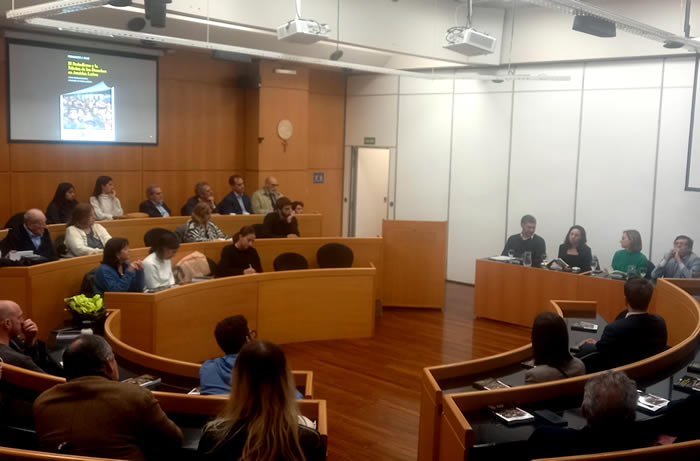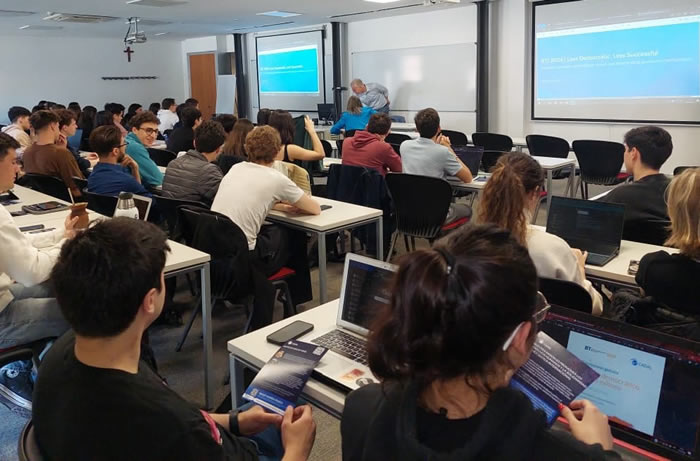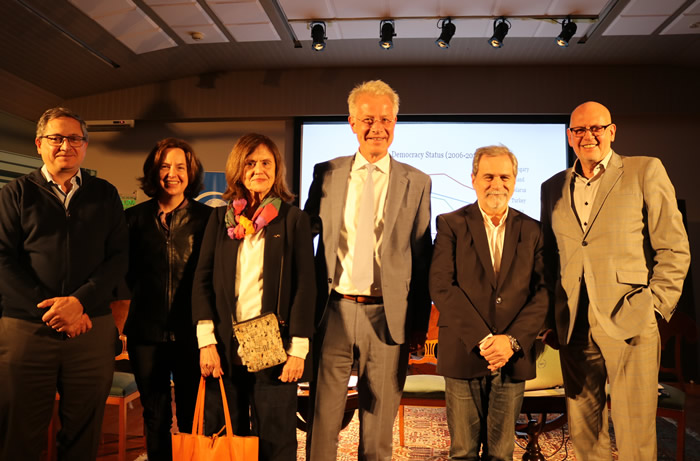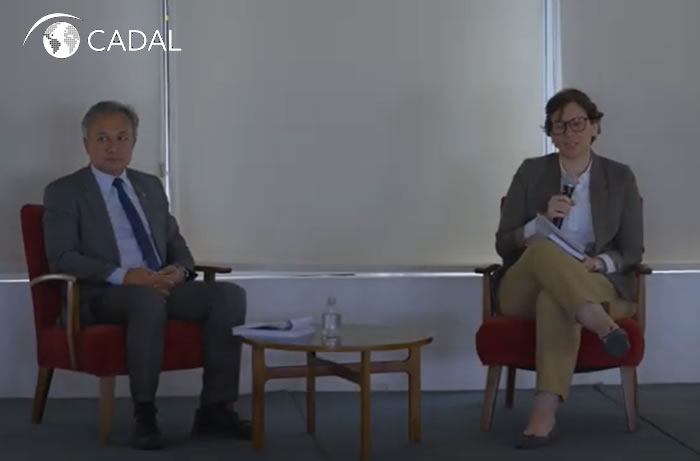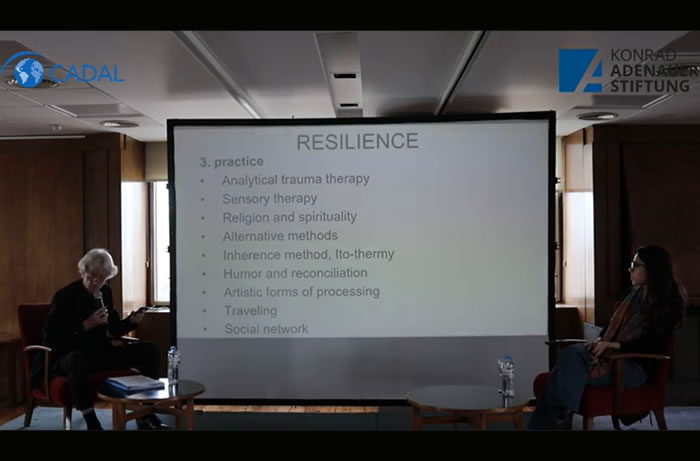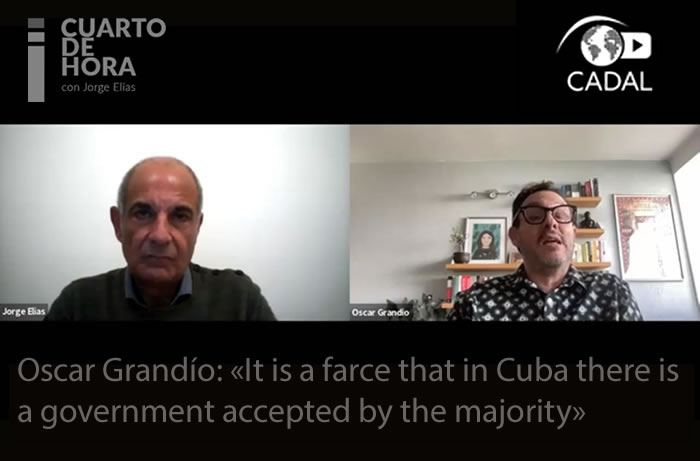Notes of books
Monitoring of democratic governance
Prologue to «The chilean experience»
This is the perspective that frames CADAL’s valuable initiatives regarding the Chilean case. CADAL’s purpose is to study Chile with the seriousness it deserves, free from destructive ideologisms and with the help of renowned experts. This book is an excellent example of its ambition to take Chile seriously. The reader who seeks easy praise or condemnation will no doubt be disappointed. The reader who wishes to seriously understand how many of Latin America’s ills can be overcome is, on the other hand, in for a generous reward.
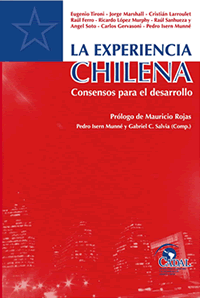 Chile causes amazement and division. It causes amazement due to its extraordinary economic growth, outstanding improvement of its population's general living conditions and unique rate of poverty reduction in Latin America. Chile also causes amazement due to its open and competitive market economy, as well as its exceptional combination of democracy, rule of law, trustworthy public administration and solid political consensuses. Finally, it causes amazement because it is a Latin American country that is achieving what was seemingly impossible in a region of countless frustrations and lost opportunities. But, Chile also causes division.
Chile causes amazement and division. It causes amazement due to its extraordinary economic growth, outstanding improvement of its population's general living conditions and unique rate of poverty reduction in Latin America. Chile also causes amazement due to its open and competitive market economy, as well as its exceptional combination of democracy, rule of law, trustworthy public administration and solid political consensuses. Finally, it causes amazement because it is a Latin American country that is achieving what was seemingly impossible in a region of countless frustrations and lost opportunities. But, Chile also causes division.
Chile causes division due to its success story, the violent start of its leap towards progress, the terrible price it paid in terms of blood, sweat and tears to break free from its misfortunes. Chile also causes division due to its high levels of inequality; although they do not deny the great progress of large majorities of the population, these levels of inequality must not be ignored because they have the potential for instability, especially if the economic progress were to suffer a prolonged decline.
This combination of amazement and division, this bitter taste that lingers in one's mouth after savoring Chile's success, may explain why the good news from Chile is generally received with silence. This silence is understandable when it comes from a sector of the Left that forgets nothing and learns nothing. This sector of the Left believes the success of a market economy that opened its doors to the world is an anathema and that the renovated, democratic and market-oriented attitude of the Chilean Left is a manifest treason. But the silence is also shared by others, both inside and outside Latin America, and this is where the ambivalence created by the Chilean case becomes evident.
Can one love the present-day Chile without reservation? Can Chile be proposed as a model, or at least, an important source of inspiration? "Yes", its present (and predictable future) emphatically replies; "No", the memory of its painful beginning immediately replies. Chile does not remind us of Cinderella who turns into a princess, but of the hateful step mother who ends up by getting her way and dazzling everyone. This is, by the way, irrelevant to the present-day average Chilean who is too busy progressing to ponder on the origin of his or her amazing possibilities. As every successful country, Chile has its mind set on the future and not, like Argentina, the past. So far, there has been little time for nostalgia in the country with a "crazy geography" that once bred marvelous poets but also underdevelopment that condemned an important part of its population to endemic poverty.
Perhaps in the future, when the fruits of progress are ripe, Chileans will look back and try to answer the questions of a past that will be remote enough to analyze with a cool head. The rest of Latin America cannot afford the wait. There is an urgent need for feasible alternatives in a region where most countries still hover between instability and lack of development, and have persistent poverty, corrupt political systems and a rule of law that leaves a lot to be desired. Destructive waves of populism and social insurrection are proof of the weakness of Latin American institutions and the region's inability to participate in the progress of globalization. In short, there are too many failures and problems to keep ignoring the one country that is taking enormous strides in leaving Latin America's endemic problems behind. The confirmation of democratic Chile's success in terms of poverty reduction is enough to turn a serious analysis of its development into a basic duty of solidarity towards the two hundred million-plus Latin American poor.
This is the perspective that frames CADAL's valuable initiatives regarding the Chilean case. CADAL's purpose is to study Chile with the seriousness it deserves, free from destructive ideologisms and with the help of renowned experts. This book is an excellent example of its ambition to take Chile seriously. The reader who seeks easy praise or condemnation will no doubt be disappointed. The reader who wishes to seriously understand how many of Latin America's ills can be overcome is, on the other hand, in for a generous reward.
Stockholm, August 2005
Mauricio Rojas
Member of the Swedish Parliament
Associate Professor of Economic History at Lund University (Sweden)
 Chile causes amazement and division. It causes amazement due to its extraordinary economic growth, outstanding improvement of its population's general living conditions and unique rate of poverty reduction in Latin America. Chile also causes amazement due to its open and competitive market economy, as well as its exceptional combination of democracy, rule of law, trustworthy public administration and solid political consensuses. Finally, it causes amazement because it is a Latin American country that is achieving what was seemingly impossible in a region of countless frustrations and lost opportunities. But, Chile also causes division.
Chile causes amazement and division. It causes amazement due to its extraordinary economic growth, outstanding improvement of its population's general living conditions and unique rate of poverty reduction in Latin America. Chile also causes amazement due to its open and competitive market economy, as well as its exceptional combination of democracy, rule of law, trustworthy public administration and solid political consensuses. Finally, it causes amazement because it is a Latin American country that is achieving what was seemingly impossible in a region of countless frustrations and lost opportunities. But, Chile also causes division.
Chile causes division due to its success story, the violent start of its leap towards progress, the terrible price it paid in terms of blood, sweat and tears to break free from its misfortunes. Chile also causes division due to its high levels of inequality; although they do not deny the great progress of large majorities of the population, these levels of inequality must not be ignored because they have the potential for instability, especially if the economic progress were to suffer a prolonged decline.
This combination of amazement and division, this bitter taste that lingers in one's mouth after savoring Chile's success, may explain why the good news from Chile is generally received with silence. This silence is understandable when it comes from a sector of the Left that forgets nothing and learns nothing. This sector of the Left believes the success of a market economy that opened its doors to the world is an anathema and that the renovated, democratic and market-oriented attitude of the Chilean Left is a manifest treason. But the silence is also shared by others, both inside and outside Latin America, and this is where the ambivalence created by the Chilean case becomes evident.
Can one love the present-day Chile without reservation? Can Chile be proposed as a model, or at least, an important source of inspiration? "Yes", its present (and predictable future) emphatically replies; "No", the memory of its painful beginning immediately replies. Chile does not remind us of Cinderella who turns into a princess, but of the hateful step mother who ends up by getting her way and dazzling everyone. This is, by the way, irrelevant to the present-day average Chilean who is too busy progressing to ponder on the origin of his or her amazing possibilities. As every successful country, Chile has its mind set on the future and not, like Argentina, the past. So far, there has been little time for nostalgia in the country with a "crazy geography" that once bred marvelous poets but also underdevelopment that condemned an important part of its population to endemic poverty.
Perhaps in the future, when the fruits of progress are ripe, Chileans will look back and try to answer the questions of a past that will be remote enough to analyze with a cool head. The rest of Latin America cannot afford the wait. There is an urgent need for feasible alternatives in a region where most countries still hover between instability and lack of development, and have persistent poverty, corrupt political systems and a rule of law that leaves a lot to be desired. Destructive waves of populism and social insurrection are proof of the weakness of Latin American institutions and the region's inability to participate in the progress of globalization. In short, there are too many failures and problems to keep ignoring the one country that is taking enormous strides in leaving Latin America's endemic problems behind. The confirmation of democratic Chile's success in terms of poverty reduction is enough to turn a serious analysis of its development into a basic duty of solidarity towards the two hundred million-plus Latin American poor.
This is the perspective that frames CADAL's valuable initiatives regarding the Chilean case. CADAL's purpose is to study Chile with the seriousness it deserves, free from destructive ideologisms and with the help of renowned experts. This book is an excellent example of its ambition to take Chile seriously. The reader who seeks easy praise or condemnation will no doubt be disappointed. The reader who wishes to seriously understand how many of Latin America's ills can be overcome is, on the other hand, in for a generous reward.
Stockholm, August 2005
Mauricio Rojas
Member of the Swedish Parliament
Associate Professor of Economic History at Lund University (Sweden)






